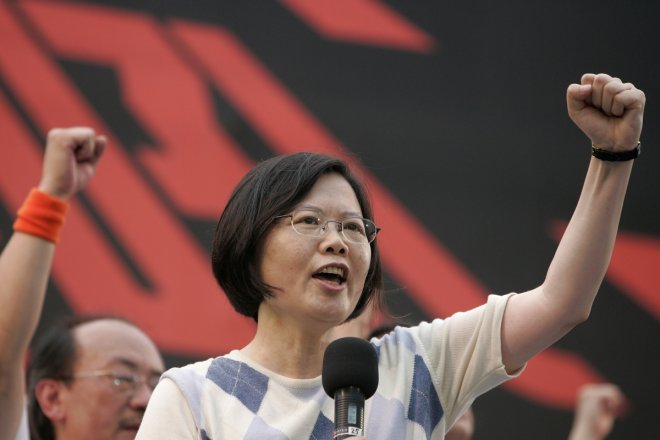
In a stupendous break with tradition, US President-elect Donald Trump spoke with Taiwan's President Tsai Ing-wen, a move that could jeopardize the opening gambit in the new president's ties with China.
China considers self-ruling Taiwan as a renegade province and hasn't stood down on the possibility of using force to annex the island. The US recognized the People's Republic of China and started diplomatic relations with Beijing in the early 1970s, but continued cordial unofficial relations with Taiwan. However, no US president or president-elect has held official talks with a Taiwanese leader since Washington adopted the One-China policy in 1979.
Trump's transition team confirmed the call with Tsai, whose election as leader earlier this year roiled the Taiwan-China ties even further. Beijing had cut off all official communication with Taipei after the election of Tsai as she openly defied the One-China policy.
"During the discussion, they noted the close economic, political, and security ties. President-elect Trump also congratulated President Tsai on becoming President of Taiwan earlier this year," Trump's office said in a statement, AFP reported. It was not clear which side initiated the call.
The Chinese reaction to the Trump-Tsai call was not available immediately but a senior official at Taiwan's representative office in Washington said the discussion was historic, Reuters reported.
The pronounced deviation from the stated diplomatic practices between the US and the Asian giant looks ominous, considering that the Chinese are already apprehensive about the fallout of Trump's radical economic policies on bilateral relations.
Trump's protectionist trade policy and a threat to impose 45 percent tariff on imports from China were embellished with a fiery campaign promise that China will be declared a currency manipulator.
Chinese government mouthpiece Global Times had termed Trump's actions "unprofessional". "China will take a tit-for-tat approach then. A batch of Boeing orders will be replaced by Airbus. US auto and iPhone sales in China will suffer a setback, and US soybean and maize imports will be halted. China can also limit the number of Chinese students studying in the US" the paper said.
Diplomatic circles reserved mixed reactions to the sudden shift in the US foreign policy that Trump's call with Tsai portended. While some dismissed it as an as-yet-unclear outreach from an unpredictable Trump whose foreign policy credentials were always suspect, others saw it as a bold new positioning vis-a-vis China.
In any case, it will be interesting to note how China will react to the sudden change and its immediate impact on Taiwan-China ties. In October, President Tsai Ing-wen said her country would not bow to pressure from China and urged Beijing to engage in talks with her government.
Tsai's Democratic Progressive Party (DPP) has a charter that includes a clause promoting "a sovereign and independent Republic of Taiwan". Tsai and her party have refused to accept the '1992 consensus' which was agreed by a China-friendly Nationalist government, which says Taiwan is an integral part of the mainland.









